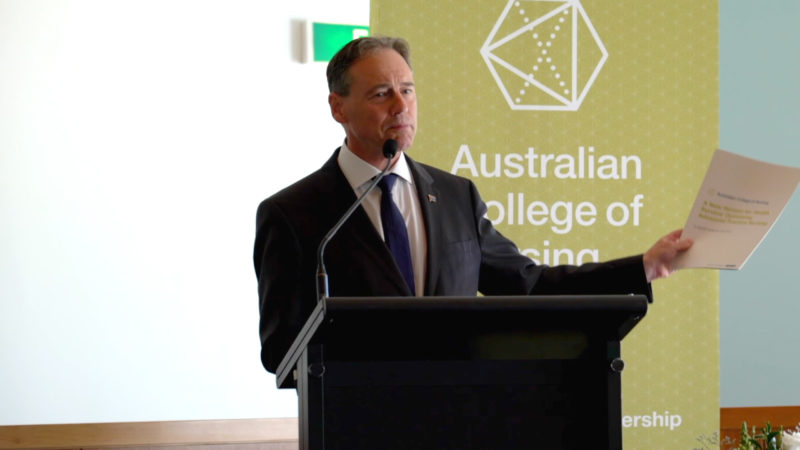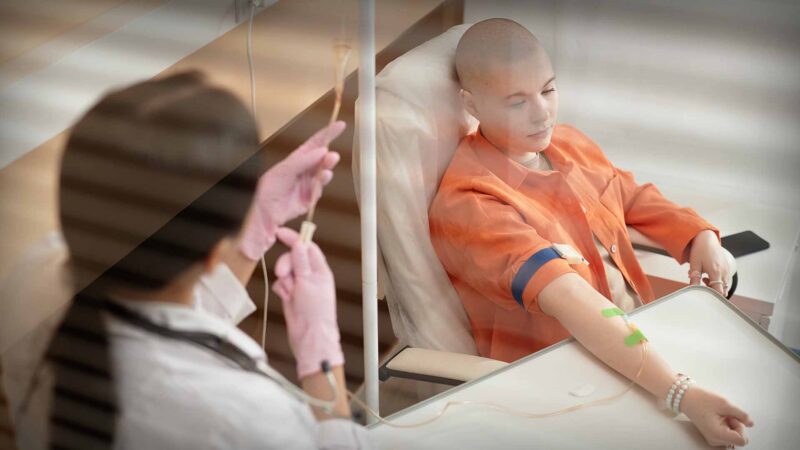CONGENITAL HYPOTHYROIDISM: AWARENESS, DIAGNOSIS AND TREATMENT IN PAEDIATRICS
People In Health Care
Associate Professor Michelle Jack, Paediatric Endocrinologist
Clinical Practice & Co-Lead Doctor of Medicine, Bond University, Queensland
Filmed Robina, Queensland | October 2024
Michelle Jack is Associate Professor of Clinical Practice, Faculty of Health Sciences & Medicine at Bond University, QLD, co-Head of Paediatrics and a Paediatric Endocrinologist at Lismore Base Hospital in NSW and Senior Staff Specialist, Paediatric Endocrinology, Northern New South Wales Local Health District.
Associate Professor Jack is a member of the ANZSPED Laboratory and Newborn Screening Sub-committee https://anzsped.org/subcommittees/lab-group/ and Thyroid working group https://anzsped.org/subcommittees/thyroid-working-group/.
Australian Health Journal spoke to Associate Professor Jack about congenital hypothyroidism and newborn screening and her concerns in the varying thresholds for across different states in Australia. Despite the existence of newborn screening programs since the 1970s, there is still controversy surrounding the appropriate screening levels. Congenital hypothyroidism, affecting about one in 3500 infants, can lead to severe intellectual and physical impairment if not diagnosed early. The condition is mainly caused by the thyroid gland’s failure to develop properly, resulting in insufficient thyroid hormone production.
The current challenge lies in setting the right screening thresholds to avoid false positive or missed diagnoses. Assoc Prof Jack highlights the need for standardisation in the approach to borderline thyroid abnormalities in children, as the wide variety of responses from paediatric endocrinologists indicates a lack of consensus. She emphasises the importance of conducting high-quality research to determine the optimal screening thresholds, considering both the impact on infants and their families and the healthcare system’s cost.
Associate Professor Jack is passionate about the health and wellbeing of children and adolescents, with diverse research areas including the impacts of family friendly workplace initiatives, screening and management of thyroid disorders in infants and children. She supports her First Nations colleagues on Indigenous-led research projects funded by the Medical Research Future Fund, aiming to improve the social and emotional wellbeing of First Nations Children. Through her clinical and academic roles, Michelle hopes to make a positive difference to the health and well-being of children and their families.
References on congenital hypothyroidism
ANZSPED website resources on congenital hypothyroidism
– https://anzsped.org/patient-resources/hormones-me-booklet-series/
– https://anzsped.org/patient-resources/anzsped-patient-flyers/)
Fifty years of newborn screening for congenital hypothyroidism: current status in Australasia and the case for harmonisation
You Might also like
-
The Case for Embedded Pharmacy in Residential Aged Care
Embedded pharmacy in residential aged care has been successful in South Australia at the Tanunda Lutheran Home in the Barossa Valley. Julian Soriano talks about his pharmacy role in medication management and medication safety to deliver the best clinical care for residents.
In this segment, Julian talks about the traditional pharmacy model serving residential aged care and the limitations of the imprest process for dispensing medication. Soon into the project he saw the collaboration required with GPs and onsite nurses in dispensing medication for residents in end-of-life or palliative care. Julian sees the imprest process unable to support end-of-life residents, even being able to check the availability of medication.
But what most may not be aware of, is his rapid growth since starting the business in 2013 having just been in health care a few years earlier. Being part of a 2nd generation health care family, Shawn learnt from his father on site and at trade show visits overseas. Prior to HPA, he spent 2 years working in fit-outs of operating theatres, neo-natal and general population ICU, throughout being more fascinated with what he saw. -
“Nurses can do more, should do more and now they will do more”, The Hon Minister Greg Hunt MP, Minister for Health.
Advanced Practice Nurses comprise 9% of the total nursing workforce, with 26,000 clinicians Australia wide. However although highly skilled, they are under-utilised and constrained to the full scope of practice. The Australian College of Nursing believes this needs to change. Nurse led models of care in which Advanced Practice Nurses play a significant role in service provision, must feature in the future. ACN President Professor Christine Duffield FACN states, “It’s now widely acknowledged internationally that nurses can provide a clinical and very valuable service that’s better suited to the healthcare needs of some consumer groups.”
-
Mission to raise awareness of sarcoma and need for clinical trial funding
Sarcoma, a rare and aggressive cancer, remains the deadliest cancer for children and young adults, accounting for nearly one third (30%) of cancer-related deaths among those aged 15–24 and one tenth (10%) of those aged 0–14. Further, still severely under-diagnosed, sarcoma only accounts for one sixth (15%) of all cancer diagnoses in the 15 – 24 age group, and less than a tenth (8%) among children under 10.



